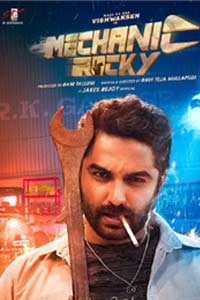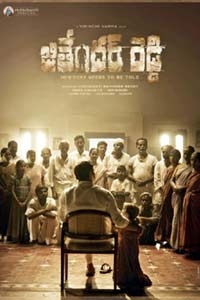
If you discover Yeto Vellipoyindi Manasu to be your-kind-of-film, you will find it almost flawless; otherwise, if you are someone who loves a Puri Jagannadh-type filmmaking, you will not like the fact that Nani doesn't overpower the heroine (by slapping or shouting like hell) every time she is fickle or pig-headed. To be fair to Gautham Menon, he has delivered a realistic conversational love story. If it was AR Rehman's music that was Ye Maya Chesave's raison d' etre, it is the class act of both Samantha and Nani (who is nothing less than a revelation) that keeps some of us glued.
It is not a screenplay-based film but a dialogue-based film. And certainly the slice-of-life lines that make the lengthy conversations watchable deserve a big thanks.
Varun (Nani) and Nithya (Samantha) have been friends in school and in college without confessing their love for each other until they reach 20. Nithya, though has a mind of her own, comes across as someone who would not like anything else in life except being with Varun all the day. All along, the guy has enjoyed her love and reciprocated it blissfully. One fine day, he realizes that he has forgotten the reality that he is a middle class man who would have to confront Nithya's rich parents sooner or later. He fears the looming possibility of causing insult to his doting father.
He takes a careerist decision at this point, but this ordinary decision of his changes the course of his love life. The rest of the film is about how he tries to convince her about his sincerity, how they break-up all over again and how they patch up once and for all.
Surely, one should go to YVM without expecting the regular drama and song-and-dance interludes.
A problem with a film like this is that there cannot be much variation between the two halves, yet given a gripping narrative, it could easily be decked-up as a worthwhile film. YVM is much better than Ye Maya Chesave in that there are no incredulous scenes like the one where Naga Chaitanya exclaims with the glee of a crest-fallen sportsperson after the heroine boldly walks out of the wedding and seems to be saying: "Mama, we thought I am out of the series and this is the final match. There is going to be another match!"
Speaking of the pluses, the lead pair thankfully fit the bill perfectly, the situations are unpretentiously realistic, the conversations easily resemble real ones between two average lovers. The songs are neatly coalesced into the narration and the Maestro's BG score works fine. On the flip side, the unavoidable repetitiousness (in the second half) might tend to seem to be tad tedious to many. There comes a point when you would want to squeal in disbelief that nobody would take things to the extreme not once or twice but one too many times. Which is why it is essential to see the rifts and patch-ups through the eyes of Varun and Nithya, because they are definitely not the routine lovers our films famously portray or we encounter in our lives.
It takes a humongous amount of conviction to weave an uneventful love story. For all the scent of rarity of a story that evolves in three stages, YVM is mundane and there is nothing cinematic about it. In the end, such films always work for a minority (like this year's much-maligned film, Andala Rakshasi).
If Samantha's maturity as an actor is obvious, Nani's knack is equally brilliant. He is quintessentially natural and is almost impeccable. The way he sings Priyatama Neevachata Kushalama sets the stage for a performance that deserves a big round of applause. Samantha excels by portraying three different body languages. She shows the trauma of break-up in a mature fashion.
The rest of the cast, including Krishnudu, do their parts well.
The cinematography is as good as the BG score. Illayaraja's music is not catchy but the songs definitely elevate the mood.
Released on: 14th Dec, 2012
Rating: 0 / 5.0
Showcase your talent to millions!!
తెలుగు Movie Reviews
 Devaki Nandana Vasudeva
Devaki Nandana Vasudeva
 Zebra
Zebra
 Mechanic Rocky
Mechanic Rocky
 Matka
Matka
 Kanguva
Kanguva
 Jithender Reddy
Jithender Reddy




Comments